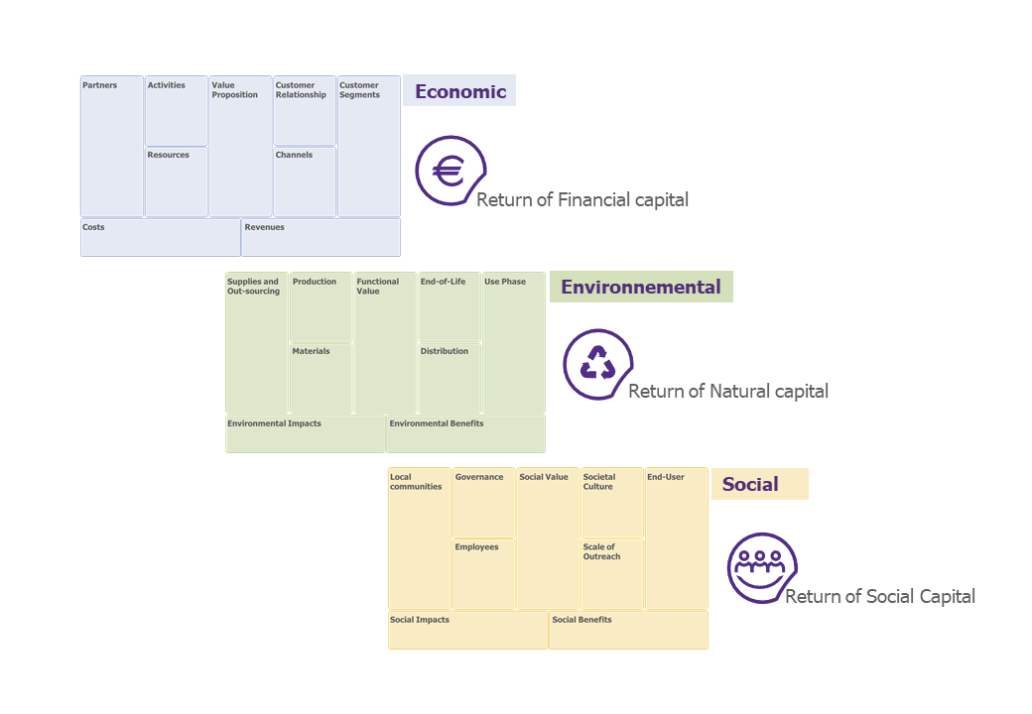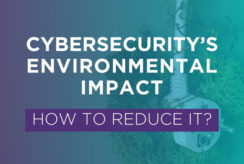Organizations are looking more and more to extend their business dimensions with the addition of an environmental dimension based on a lifecycle perspective and a social dimension based on a stakeholders’ perspective. Wavestone, in alignment with its Corporate Social Responsibility (CSR) strategy and commitment to reducing its carbon footprint, is committed to helping its clients reach their environmental and social ambitions and identify associated business opportunities.
Our mission is to facilitate the shift towards sustainability
Integrating environmental and social considerations into the economic equation is key to facilitating the shift towards operating sustainable businesses. However, this is often confronted with many challenges rendering the return of financial capital inconsistent with a return on environmental and social capitals.
In the last decade, circular economy has been increasingly considered a key driver to resolving this triple layered equation. In particular, recycling products at the end of their initial life cycle seems to bring a viable option to the table, though conditioned on finding the right (if existing) technologies, use cases and ecosystem of partners allowing to turn this recycling approach into a reality.
In order to assist organisations decrypt the potential of their products, we identify three actions that should be completed in an early stage of ideation and assessment of innovative recycling approaches:
- Identify existing and emerging circular economy use cases around the product in question: Define the playing field and use cases typologies; discover opportunities; identify ingredient to include; prioritize and converge
- Create and validate the minimum viable ecosystem and value chain: identify product raw materials sellers and technology providers: Identify potential intermediaries and build the circular economy loop
- Design value propositions and business models: Establish attractive value propositions for stakeholders and a repeatable, scalable and operational business model
Paving the way to sustainable business models
In addition to defining the scope of opportunities to converge and priorities use cases, carrying out a desirability study among experts and decision makers across the value chain is essential to evaluate the value proposition on the one hand, and the willingness of different actors to collaborate on the other hand.
Such a study facilitates the identification of viable scenarios and the corresponding assumptions to verify and measure in order to deliver a business model that takes into account economic, social and environmental considerations.
Prioritising these core assumptions will, in later stages, allow the commissioning of a feasibility study to ensure an initial scale-up of solutions in order to realistically quantify the value proposition across the ecosystem. This can inform an extensive techno-socio-economic cost structuring which is essential to develop a robust and sustainable business model.
Finally, it is important to note that, as is the case for every innovation, the allocated period of time and budget are key elements to the success of abovementioned studies.




